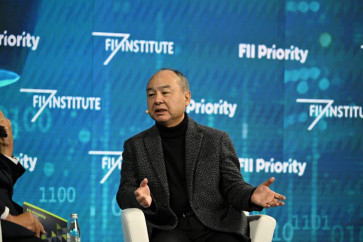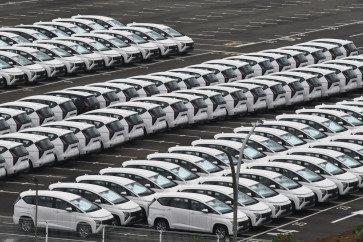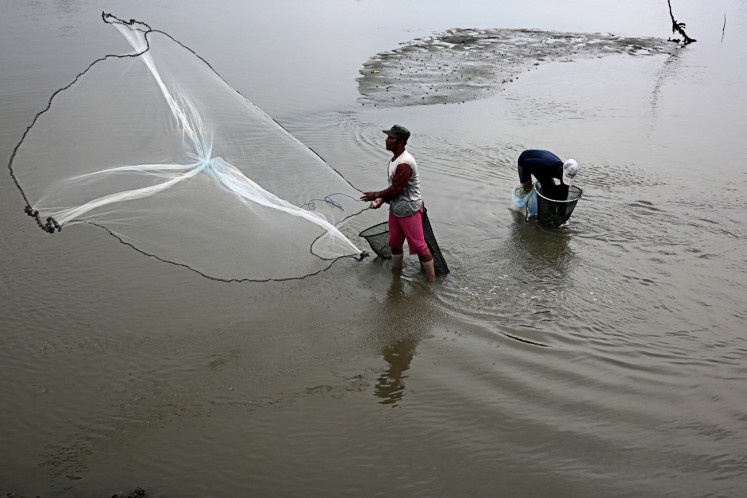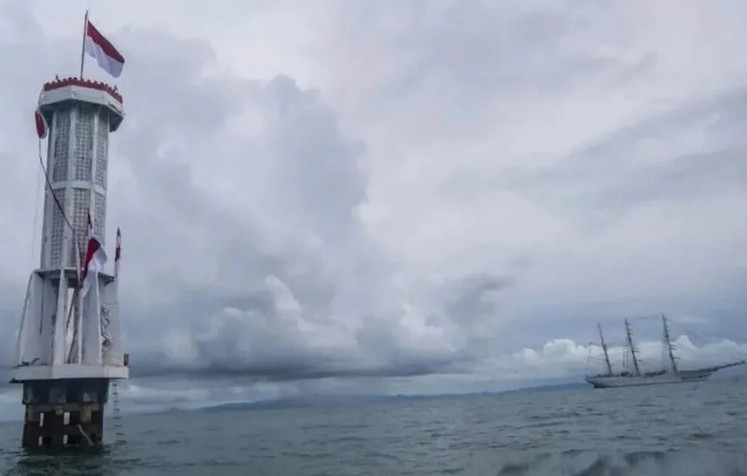Popular Reads
Top Results
Can't find what you're looking for?
View all search resultsPopular Reads
Top Results
Can't find what you're looking for?
View all search resultsLocal govts must adapt to targets
Local administrations need to adapt to minimum budgets and provide people with water resources, otherwise the nation’s target of giving all households access to drinking water will not succeed, a senior official says
Change text size
Gift Premium Articles
to Anyone
L
ocal administrations need to adapt to minimum budgets and provide people with water resources, otherwise the nation’s target of giving all households access to drinking water will not succeed, a senior official says.
Dani Sutjiono, director of drinking water development at the Public Works Ministry, said on Wednesday that Indonesia needed around Rp 65 trillion (US$7.1 billion) to provide safe water for people as part of its Millennium Development Goals (MDGs) targets.
Unfortunately, the government can only provide Rp 38 trillion. Thus, local administrations need to find other sources, including loans from the private sector.
Today, the proportion of households with access to clean water stands at 47.71 percent. It is targeted to reach 68.87 percent by 2015. Clean water may come from artesian wells or tanks.
In urban areas, the number reaches 49.82 percent and is expected to reach 78.19 percent by 2015. Only 45.72 percent of households in rural areas have access to safe water, which is projected to reach 61.60 percent in 2015.
“It will be hard for us to achieve the targets if we only rely on the state budget. So we facilitate local water-utility company [PDAM] to expand their services by providing loans and interest subsidies,” Dani told The Jakarta Post.
According to the Public Works Ministry, the proportion of households equipped with a water pipeline is only 25.56 percent, while the target is to reach 41.03 percent by 2015.
In urban areas, the number reaches 43.96 percent, far lower than the 68.32 percent targeted in 2015. Only 11.54 percent of households in rural areas are equipped with a water pipeline facility and it is projected to increase to 19.76 percent by 2015.
To expand the service, Dani said the government had tried to secure financing commitments worth
Rp 4.2 trillion from several banks.
“That financial support should enable local water-utility companies to expand their services by building more pipelines,” he said.
In fact, only a few PDAMs had benefited from the loan facilitations available, he added.
Ministry data shows that only Rp 100 billion of a total Rp 4.2 trillion of loans provided by the banking sector have been used by PDAMs in Bogor and Ciamis in West Java and East Lombok in West Nusa Tenggara (NTB).
Another Rp 100 billion will soon be disbursed for several PDAMs in three regencies and municipalities: Banjarmasin in South Kalimantan, Malang in East Java, and Tasikmalaya in West Java.
Dani said water pipeline projects were a cost-recovery business; therefore, there was no reason for PDAMs to avoid borrowing money from banks.
“I’m sure they can return their loans. So I still don’t understand why they are reluctant to take the loan facilitations we offer,” he said, adding that some local governments, such as Karawang and Serang in West Java and Wonosobo in Central Java, had not given their approval to PDAMs in their areas to borrow money from the banks.
Speaking separately, Mochamad Amron, director general of water resources at the Public Works Ministry, said that safe water was not merely water provided by PDAMs directly to households through pipelines.
“Safe water can be water from public pumps, water tanks or artesian wells, and also protected water springs,” he told the Post.
The government is allocating Rp 1.5 trillion in 2012 for supplying raw water, up from Rp 1.2 trillion in 2011.
“With the allocation, I’m sure we can give people more access to safe drinking water, provided either in public water pumps or water tanks,” said Amron.










